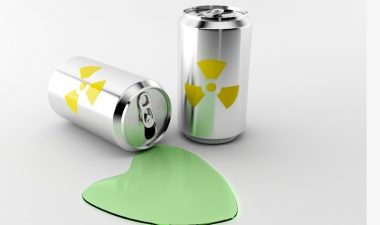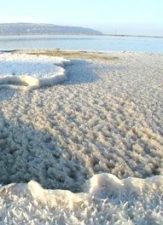Last week Green Prophet introduced Sophie from Tinok Yarok, when she started her weekly column on ‘greening’ your baby. This week Sophie discusses the cloth nappy debate. Thinking about switching to the cloth diapers of yesteryear?
Here’s Sophie’s take:This week I am introducing you all to the cloth nappy debate. This is a big one so it will probably run for a few weeks. Next week I will take you through all the different types of cloth nappies available and will also talk about doing without; then there’s all those so called accessories, so stick around and let’s hear what you think too!
For today’s Eco-Mum, options are happily increasing all the time and nobody can say that it is like days gone by. Cloth nappies come in all shapes and sizes allowing mum and baby to find the best and comfiest option possible. So what’s all the fuss about?  The average baby uses at least 5,000 disposables from birth to potty; this is a staggering number when you think how many babies in Israel alone are using them. All these nappies end up in landfill sites taking hundreds of years to break down, if at all.
The average baby uses at least 5,000 disposables from birth to potty; this is a staggering number when you think how many babies in Israel alone are using them. All these nappies end up in landfill sites taking hundreds of years to break down, if at all.
Sadly this is not the end of the story– the super-absorbent gels continue absorbing and sucking up the groundwater that would usually help in the decomposition of other waste, and the kaki and pee pee may pose a health hazard. Did you know that even with disposable nappies you are supposed to throw the kaki into the toilet! And yes that is still not all the damage.
And yes that is still not all the damage.
The manufacturing process of all these nappies requires huge amounts of natural resources such as oil for the plastic and wood for pulp, add in all the chemicals, bleaches, gels & glue and the environmental cost for your nappy becomes enormous.
So why use them? Nobody will argue that they do make life simpler but today’s cloth nappies are just so easy to use there really is no excuse any more; and if you really do need that disposable there are eco-disposables available that take around 100 days to biodegrade.
So what about all that electricity and water, especially in a water tight country like Israel? Well, today’s washing machines are becoming more and more efficient with water usage (you can also set up a water recycling system where grey goes to black, i.e. the to flush the toilet) and it is better to use your washing machine at night when the tariff is lower and the strain on the grid is less.
Environmental agencies have done the math over and over again. It is a tight race but cloth nappies are still in the lead as the healthiest, greenest system for your baby.
Sophie::Tinok Yarok
See also Nursery Madness.




Look forward to seeing DISQUS evolve – as I’ve said before, I do think it’s a great system, just needs some fine-tuning (but I’m picky at the best of times!). Colon Cleanse
Okay Dov, I concede you are right but my mum did not use a diaper service, that also did not exist in England 27 years ago. At the end of the day, the ecological and health issues are very important when deciding which road to take and if cloth nappies just seem too hard to swallow then there are ecological disposable nappy options available in Israel try http://www.nuli.co.il , Hag Samech!
Growing up in England you did….Israel 27 years ago wasn’t anything near England. Incomparable is an understatement. Nothing strange about it at all.Not to mention that a bunch of Kollel people in an uncivilized environment weren’t about to spend on diaper service. apples and pears. Are you kidding? You had to wait 4 months when ordering a phone.
Now thats strange because growing up in England we did!
hmm…nappie liner. didn’t have those 25 years ago. Thats when we had 3 kids in diapers, all the time.
Hi Dov, let me help you, I kept my nappy bucket next to the toilet, khakee was dropped with nappy liner(biodegradable & flushable) straight down the toilet, nappy in bucket, when full goes to wash, I hung them out, folded & shelved, my little girl loved helping or I did it in the evening, I never felt as if it was a burden the opposite quite relaxing & rewarding.
So, chava, (we’re in grandchildren stage , now), how do you clean them? A diaper full of #2 goes where? who folds them to put them away? Extra shelves? Plastic pants? Extra bucket to hold them till they’re washed? Diaper service? (never had one of those). My wife writes web content for some sites, and could write here for some knowledgeable additions to those who need.
Prefolds are available from Siach Teva 0577723323, if you follow onto this weeks post I have listed all the suppliers here in Israel. If you have any other questions regarding going green I am always happy to help
Am trying to go green myself but am not able to find Diaper Service Quality (DSQ) Prefold diapers. I prefer to use the prefolds with a cover/wrap rather than the fitted but all I can find are the fitted online or the flat gauze style in the pharmacy. Where can I find prefolds in Israel? Please advise. Thank you.
Dov, I’m only slightly behind you in terms of # of children (ka’h, ptu ptu ptu) and I use cloth. No stinky bucket swishing here. Maybe if you did a bit of checking into what more modern cloth diapers are like vs. what you remember from Earth Day in 1970, you’d have a different opinion.
To the person bemoaning the expense. I made fitted diapers from this pattern: http://www.sewshoppe.com/cbptn.shtml a few years ago at great savings. I bought fabric that was on closeout and saved even more. If you can find someone to attach snaps when you finish sewing ( found a local seamstress with a professional snap press who did it for grushim), you wind up with a product indistinguishable from the pricey fitted diapers being sold professionally. If you can’t find someone with a snap press, you can use velcro. I made the inner layer out of microfleece so my baby gets the “stay-dry” effect and you don’t get stains either.
I have been cloth diapering now for almost 5 years – I’m on my third baby. There are so many advantages. If you start with the baby. It is much nicer to be feeling cotton on your skin than wrapped in plastic for the first 2 years of your life. Anyone who has switched from disposable mentrual pads to cloth can testify this for themselves. Also, whenever I put my youngest in plastic diapers (which I do occasionally), her butt turns all red. Could it be the chemicals? Maybe her sitting in her own urine for hours and hours (which you can do with plastic unlike with cloth). My two oldest were potty trained relatively early. Although I can’t be sure it is because they were in cloth, I think they were much more aware of when they went to the bathroom since they could feel the wetness.
As for the issue of using water and electricity – just to make all those disposable diapers uses tons of water and electricity. Also, has anyone ever thought of not giving their baby a bath to save water? Or maybe we shouldn’t change their clothes so often?
As for the cost, there are Israeli companies like http://www.robyna.co.il/ who make pocket diapers. You buy about 6 of these covers and stuff them with whatever you have (old towels, burp cloths, etc.). This is super cheap and works wonderfully.
After having 12 kids, I can say with authority, that throw-away diapers frees a woman from laundry. She’s got better things to do. Being a veteran changer, myself, and bucket-slosher for the first 3 kids we had, I can tell you that just the release from the smell is boon. I try to be “green,” Remembering Earth day, 1970, but I don’t know anyone who wants to trade freedom for bucket-sloshing-diaper-scrubbing slavery.
I understand it is not easy for the layout at the beginning & the idea that you might not like what you buy is daunting. So heres the thing – first of all I recommend you try one of each style available, I know I tried quite a few before I found my match, also the covers fit all nappies and three covers at the start is enough. An even simpler method is to use tetra or old towels & just cut them up & fold. And really you do not need to buy so many at one time, get started & slowly add each time.
oh and just in general I so often feel that in Israel in particular, if you want to be the slightest bit green, or different, it will cost you a fortune. Deviations from the norm here – such as cloth nappies, or brown bread – are so much more expensive than the main stream option. To be green definitely seems like such a luxury here – it annoys me!
I would really like to use cloth nappies for our baby when it arrives, but good god the cost – in Israel in particular – is sky high. Obviously I will end up spending more on disposables in the end, but my budget just can’t stand the massive one time outlay for cloth. The first website – green baby – is selling cloth nappies for between 75 to 89 shekels each. Apparently you need between 15 and 20 so you don’t need to do laundry every day. So that is say 20 multiplied by 80 – 1600 shekels in one go. The other fear is that they won’t be good – I have read reviews and some cloth nappies were better than others. I’m scared of laying out a chunk of cash, only to realise I should have bought the other brand, and now I wasted this massive amount of money on nappies that leak.
I think I will buy one or two and see how it goes, but I really wish I could find cloth nappies which were just a bit more affordable, and which were guaranteed to work!
In Israel the market is still small, hopefully as we grow prices will be able to come down somewhat but don’t forget with organic & ecological products you are paying the true price for the product.
And in general being green even with green products being more expensive it is usually more cost effective as we end up buying less & throwing away less.
Sophie sells organic cloth nappies through her website:
http://www.tinokyarok.co.il/?categoryId=22146
There are websites that show you how to make your own: http://labyrinth.net.au/~obsidian/clothpads/myclothnapmaking.html
Maybe some “older” women in Israel can start up a cloth nappy night (instead of quilting) and make nappies for the younger folk who can’t afford to buy their own. You can probably make them from recycled materials.